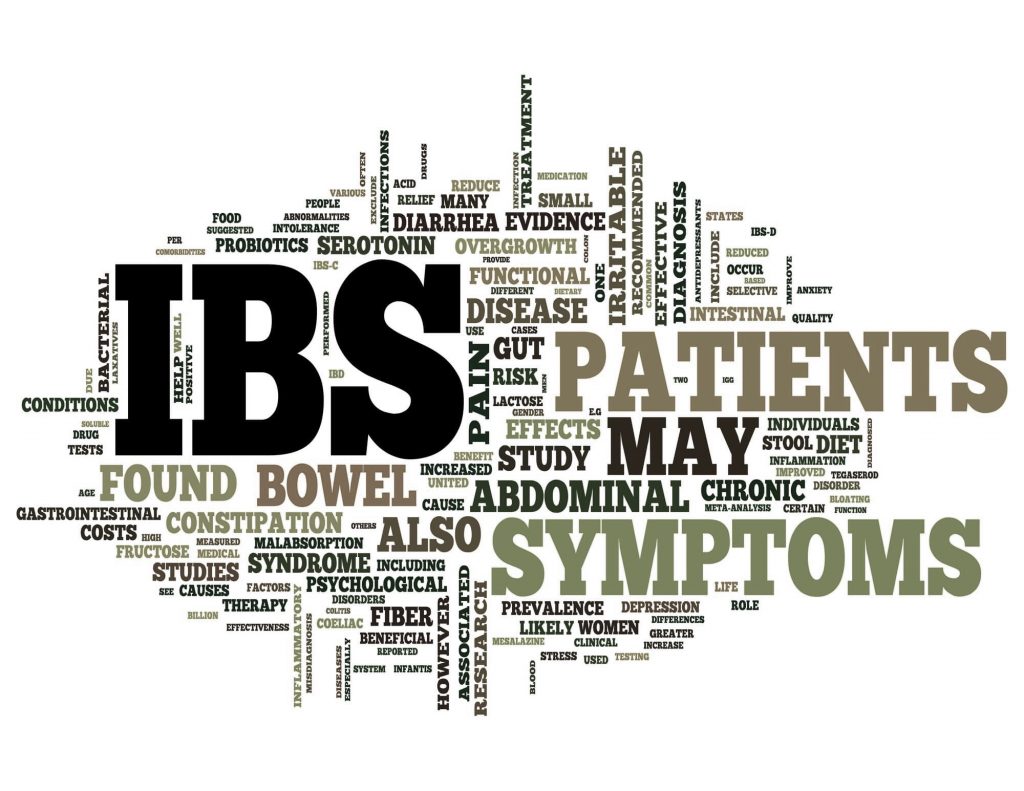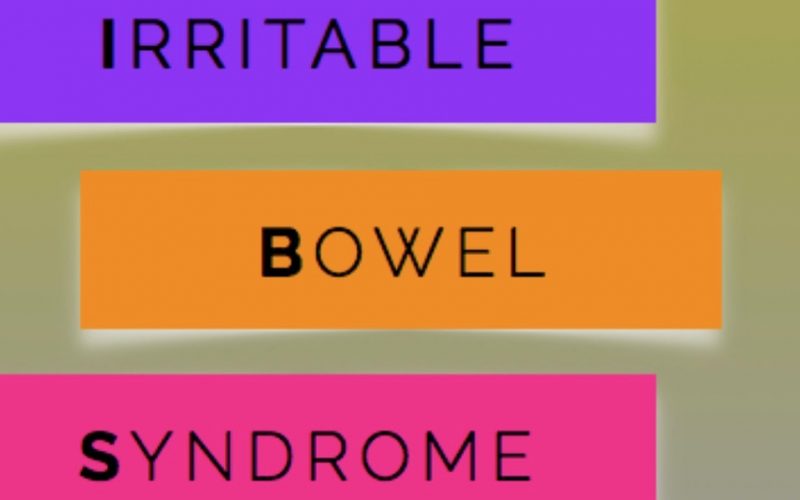Irritable bowel syndrome (IBS) is a long-term condition of the digestive system that causes episodes of abdominal cramps, bloating and changes in bowel movements. IBS is the name doctors give to a collection of otherwise unexplained symptoms relating to a disturbance in the digestive system and bowels habits. IBS is an illness that has no specific cause as it is a problem with how the bowel works.
About 10-20% of the UK population are living with IBS; it often starts in early adult life; in the teenage years and is more common in women. Doctors do not know the exact cause; research has linked IBS it to oversensitive nerves in the stomach or digestive tract causing food to pass through the gut too quickly or too slowly. Like many conditions, family history and stress are contributing factors.
Who gets IBS?
Studies have shown that the digestive system in people with IBS appears to be more sensitive than the general population, so their digestive systems respond differently to upsetting news or trauma of after suffering after an episode of gastroenteritis. IBS occurs more often in people under age 50 and is more common among women.

IBS symptoms
The symptoms can vary from person to person and include:
- Abdominal pain, cramping or bloating that is eased by passing a bowel movement.
- Excess wind and burping.
- Changes in bowel movements.
- Diarrhoea or constipation, sometimes alternating bouts of both.
- Mucus in the stools.
Other symptoms include:
- Anxiety or depression.
- Trouble sleeping and fatigue.
- Headaches.
- An unpleasant taste in the mouth.
- Muscle aches and pains.
- Sexual problems
- Heart palpitations.
- Urinary frequency or urgency.
Causes of IBS Symptoms
The causes of IBS are complex and variable but there are several common contributing factors;
- Sensitivity to some foods (see below) containing FODMAPs.
- Food intolerances and allergies
- Chronic emotional or physical stress.
- Having family members with IBS.
- Overseas travel and holiday diarrhoea
- Changes in sleep routine and circadian rhythm.
- Hormone imbalances and changes
Sensitivity to carbohydrates containing FODMAPs.
A number of foods have been shown to exacerbate symptoms of IBS, and some people are sensitive to carbohydrates containing FODMAPs.
FODMAPs is an acronym for :
- Fermentable
- Oligosaccharides (eg. Fructans and Galacto-oligosaccharides (GOS))
- Disaccharides (eg. Lactose)
- Monosaccharides (eg. excess Fructose)
- And
- Polyols (eg. Sorbitol, Mannitol, Maltitol, Xylitol and Isomalt)
High FODMAP foods
This is how High FODMAP foods might look on your plate; Garlic, Onions, Beans, Cauliflower, Mushrooms, Artichokes, high fructose fruits. Apple juice and coconut water, Beer and wine, Processed meat. Plus Some cereals and dairy products (see below)
High FODMAP foods in more detail
- Excess Fructose: Honey, Apples, Mango, Pear, Watermelon, High Fructose Corn Syrup
- Fructans: Artichokes (Globe & Jerusalem), Garlic (in large amounts), Leek, Onions, Spring Onion (white part), Shallots, Wheat, Rye and Barley (in large amounts), Inulin, Fructo-oligosaccharides.
- Lactose: All milk products: soft cheeses (cottage, cream, mascarpone, ricotta,) also in some yoghurts and ice cream.
- Galacto-Oligosaccharides (GOS): Legume beans (eg. baked beans, Kidney beans, Bortolotti beans), Lentils, Chickpeas
- Polyols: Apples, Apricots, Nectarines, Pears, Plums, Prunes, Mushrooms,
- Plus, Sorbitol (420), Mannitol (421), Xylitol (967), Maltitol (965) and Isomalt (953).
Other considerations

Muscle and nerves in the intestine.
Research shows that one of the underlying causes of IBS is abnormal functioning of the nerves, and muscles within the digestive tract.
Inflammation in the intestines.
Some people have an increased number of immune cells in their intestines which causes the pain and diarrhoea of IBS.
Severe infection.
IBS can develop after a severe bout of bacterial or viral gastroenteritis, holiday diarrhoea or food poisoning.
Gut microflora
The microflora (good bacteria) in the intestines of people with IBS has reported being different, making them susceptible to small intestinal bacterial overgrowth (SIBO).
Stress
Most bodily functions can be affected by stress, in IBS the constant communication from the gut nerves and the brain via the Vagus nerve become disrupted by chronic stress.

When to see a doctor
A medical professional should always diagnose IBS as changes in bowel habits may be a symptom of a more serious underlying condition. Worrying signs and symptoms which call for a visit to the doctor include:
- Weight loss
- Diarrhoea at night
- Rectal bleeding
- Unexplained vomiting
- Problems with swallowing
- Persistent pain that isn’t relieved by passing gas or a bowel movement.
- Feeling full after eating small amounts of food.
Diagnosis
Many other conditions can affect the digestive system including Coeliac disease, Inflammatory Bowel Disease, Lactose Intolerance, Malabsorption to name a few.
There is no medical test for IBS; diagnosis is made through a process of elimination and observation. To confirm a diagnosis of IBS symptoms needs to be present for a minimum of three days each month for at least three to six months.
Treatment
- IBS symptoms can be controlled with diet and lifestyle changes.
- Numerous medications are available (over the counter and prescribed) that can relieve abdominal cramps, a pharmacist is best placed to advise on which are most suitable.
- The tricky part of managing IBS is that it is up to the patient to experiment with their diet, exercise and sleep routines, and figure out if stress is contributing to their symptoms.
- Some people find reducing or eliminating all FODMAP foods from their diet for 4-6 weeks helpful but following this diet long term is not desirable or recommended. Please consult with an experienced nutritional therapist or dietician for advice.
Natural treatment for IBS
- Probiotics, Digestive enzymes and Omega-3 fish oil can be helpful.
- Regular exercise can improve the health of the digestive system and help manage stress.
Summary
The key to managing IBS is to understand what the underlying triggers are. Eliminating the foods that cause gut sensitivity may be enough to alleviate symptoms. If stress is a factor learning strategies to separate the stressor from the importance can be helpful, see previous posts on stress, mindfulness and movement.
Disclaimer:
This information is for guidance only, and it should not be regarded as a substitute for medical advice, diagnosis or treatment given in person by an appropriately trained health professional.
SaveSave
SaveSave
SaveSave
SaveSave
SaveSave







